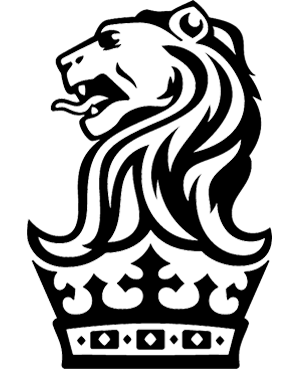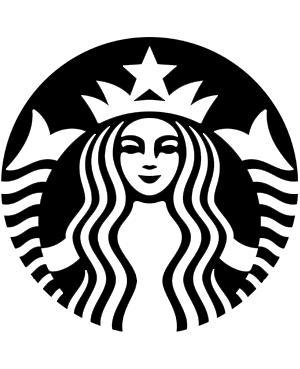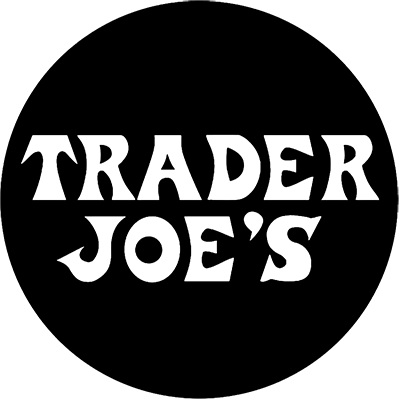Culture
Recruitment
How will you find the right people? See how brands recruit, interview, and evaluate candidates.
Look for people who disrupt the status quo
Instead of asking the conventional question, "Tell me about yourself," Airbnb co-founder Brian Chesky asks candidates to summarize their lives in three minutes or less. This provides candidates an opportunity to share their highest personal and professional achievements and gives Brian a chance to see if candidates are ambitious, creative, and forward-thinking.
Brian explains, "I'm trying to understand the two or three most remarkable things you've ever done in your life because if you've never done anything remarkable in your life until this point, you probably never will."
Hire based on shared core values
Besides the six to eight functional skills interviews each Airbnb candidate goes through, candidates undergo two Core Values Interviews. These interviews are conducted by employees not in the candidate's discipline, which removes any hiring bias. This is helpful as core values interviewers have veto power on all candidates, regardless of their skill level or whether they are applying to be an intern, an executive, or on the Board of Directors.
During these interviews, time is spent understanding a candidate's motivation to join Airbnb and how their life experiences reflect the company's values. For example, while Airbnb does not require candidates to have been a Host, they will look to see if they embody the 'Be a Host' value by asking questions like, "How do you welcome people into your house," or by noticing how candidates clean up after themselves at the end of the interview.
While it sometimes takes longer than six months to find a suitable candidate for a lead position, CEO Brian Chesky believes it is crucial to pay this short-term price if you believe in the long-term gain.
Follow this 5-step hiring process
The Apple Store hiring process can last more than one month and has a rigorous interview process where everything is graded. Quick tip: Always smile and always be friendly.
Step One: Weed out the wallflowers
In a group setting with the candidates, hiring managers, and employees all in a large room, start asking questions. The questions and their answers are not as important as in "seeing who speaks up, how well they project, and how confident they are in front of others."
Step Two: Find team players
Break up into smaller groups of about four to five people. Present candidates with a customer service situation and see how they respond. Again, the response is not as important as how they arrive at a solution. Keep the people who ask for help and interact well with the group. Get rid of the know-it-alls.
Step Three: Find the fearless, find the fans
Give each candidate five minutes to create an “About Me” page using Page. Not only do you find the true Apple enthusiasts but you also identify the fearless applicants who speak up because they don't know what they're doing. Keep both types. Get rid of the arrogant ones who try to cover up their insecurities.
Step Four: Determine who excels at service
Now put each candidate in front of a panel of managers, trainers, and sales employees. Continue the situational style questioning while asking some technical questions. While some technical knowledge is required, the goal is to determine who is most committed to providing The Ritz-Carlton level customer service.
Step Five: Choose the passionate ones
Confirm that you have the most passionate and fearless candidates that could have gone toe-to-toe with Steve Jobs. Some questions include 'What are you passionate about in life?' (Jobs' favorite) and 'Are you a nice person?' These not only reveal the character of candidates but force them to go home and really think about their fit for the position.
Hire teachers, not tech experts
At Apple, personality reigns supreme over technical knowledge when choosing their next Apple Store employee. Skills can be taught while patience, empathy, passion cannot. In fact, the ideal candidate is not a computer expert at all, but a teacher that knows a lot about people.
Test applicants to see if they are 'wowed' by your brand
It was not uncommon for Steve Jobs to unveil prototypes of the Mac from underneath a cloth to potential candidates. If their eyes lit up, and they walked right over and started playing around with it, it was a sign they were the right fit for the company.
Actively recruit where quality people gather
As Truett Cathy, founder of Chick-fil-A, wrote: "You don't generally find good employees wandering the streets. We go to schools, churches, youth organizations, and other places where quality people gather and tell them what we have to offer. When we speak to young people about job and career opportunities, we advise them, 'Select a job representing a company you will be proud to work for. Then make them proud of you.'"
Select for character, competency, and chemistry
The wrong person working just ten hours a week can break down a culture and turn away customers for good. Chick-fil-A takes their time to find candidates by judging them on three tenets.
- Character
Would you want your children working for this person? Find out by asking behavioral-based questions. These questions should be focused around your core values and require candidates to provide specific examples or stories from their past experiences.
See how to determine the right character. - Competency
Does this person have the potential to be a leader and help the company grow? Skill set is not as important as the candidate's ability and desire to learn. Chick-fil-A has candidates shadow employees for a day and then evaluate them on whether they asked good questions or any at all.
See how to measure competency. - Chemistry
Is this someone you would want to socialize with outside of work? Candidates are on their best behavior during interviews, so test them to see how they do in more relaxed social settings. Chick-fil-A includes candidates in team meetings, takes them to team dinners, and also takes them to ball games.
See how to measure chemistry.
Ask the right type of questions
Chick-fil-A follows these three principles when it comes to asking questions during an interview.
- Ask behavioral-based questions
Have candidates provide specific examples from their past by beginning questions with phrases like: "Tell me about when you.." or "Describe an experience you have had with..." Avoid situational questions like "What would you do if...," as they are difficult to answer if the candidate hasn't experienced the situation before. - Go three questions deep
After one behavioral-based question, follow-up with two more to dive deeper into the candidate's initial response. Dee Ann Turner, former vice president of talent, says that "the most valuable information about the candidate is usually found in the answer to the third question." See an example. - Pull loose threads
Make it your goal to get a full understanding of the candidate's character. If an answer sounds incomplete or made up, ask questions until you can get a clear response.
Try to get the candidate to not take the job
Dee Ann Turner, former vice president of talent at Chick-fil-A, is completely transparent with candidates when it comes to telling them the good, and also the bad, about the company and its culture. As Chick-fil-A sees it, if a candidate can be talked out of the job in the interview, it's much better to know then rather than to know after you have invested in their training and development.
Thoroughly check references
Just verifying employment history is not enough. At Chick-fil-A a reference interview can easily take up to 45 minutes. They ask the reference for specific behavioral examples and look to verify the candidate's answers during the interview process.
As Dee Ann Turner, former vice president of talent, wrote: "More of my hiring decisions have been based on references than any other part of the process."
Limit the number of interviews, and keep them short
Google believes that if you research a candidate thoroughly and ask the right questions, there is no need to have an interview last longer than 30 minutes. A shorter interview limits the time for small talk, removes meaningless questions, and "forces people, including (especially!) you, into a substantive discussion."
While candidates can interview several times during the recruitment process, Google put a limit on the number of interviews for each candidate. After analyzing the data, Google discovered that after one interview, hiring staff were ready to make a decision about 75% of the time. By interview four, the confidence to make a decision rose to 85%. After that, the ability to make a decision plateaued. Google then rounded the number up, limiting the number of interviews to five—a nice prime number.
Hire by committee
Managers at Google can say 'no' to any candidate, but if they find someone that they want to hire, they need the candidate to be approved by a committee first. This is to offset any over eagerness the hiring manager may have to just fill the position with a warm body, rather than find the right person for the role and the company's culture.
The committee is made up of five people from a variety of levels and departments. Together they review a 'candidate packet.' This 50+ page document is developed by the hiring manager and includes:
- A one-page summary with the key facts of the candidate
- The candidate's resume in its original format with any typos or bad formatting in place
- The interview questions and responses with the best and worst responses highlighted
- Additional information including compensation history, reference information, awards, and writing or coding examples
The comittee makes a decision by consensus, not by majority vote. They either vote to hire, not hire, or to request more information. After they make their final decision, they also provide feedback to hiring managers on how they can improve their interview skills and offer training or shadowing sessions.
Use structured interviewing
To avoid unconscious biases, Google uses the same interview questions and same grading scale for each role to ensure hiring decisions are based on consistent, predetermined qualifications. Structured interviews have increased Google's ability to indicate who will do well at the job, shortened the interview process, and has left both candidates and interviewers happier.
Structured interviewing process:
- Use vetted, high-quality behavioral and hypothetical questions that are challenging and relevant to the role. Avoid brain teasers.
- Record comprehensive feedback of candidate answers so hiring committees can easily review responses.
- Score the candidate using standardized guidelines to ensure reviewers are aligned in knowing what is good, mediocre, and poor responses. See Google's grading rubric.
Build a recruiting culture
Finding resumés and candidates that are high-talent is a Netflix manager's number one priority. At any time, managers should have an idea of who they would hire if their top talent left. So they recruit and interview constantly, even for positions that are already filled. In fact, at Netflix every manager makes each plane ride and every kids' soccer game an opportunity to recruit.
Create an interview process that emphasizes culture fit and talent
Step 1: Hold a pre-screen interview with a recruiter to review the Netflix Culture Deck (30 minutes).
Step 2: Set up a phone interview with a hiring manager (45-60 minutes).
Step 3: Give a take home project where candidates will need to show their work on how they arrived at a solution (6-8 hours).
Step 4-10: Hold one day of seven interviews (6-8 hours). This includes four technical interviews with whiteboard challenges and problem solving exercises, an HR interview, and two conversations with directors that will focus on culture fit.
Step 11: Hiring managers make the final decision and extend an offer. Candidates that are not chosen have to wait 6-12 months to reapply.
Ask interview questions designed to understand a candidate's thought process
Netflix interview questions range from culture fit to technical questions, with even some brain teasers thrown in to better understand a candidates thought process.
- How many cans of paint would you need to paint one wing of a 747?
- How would you determine if the price of a Netflix subscription is truly the deciding factor for a consumer?
- What would you tell someone that is calling to talk about how Blockbuster is better than Netflix?
- Who do you think is Netflix’s competitor and why?
- What would you do if you were the CEO?
- Tell me about a time you screwed up at your previous job.
- How do you stay organized? How do you handle competing tasks or projects?
- How did you handle a task where you had a deadline that you couldn’t meet?
Read resumes from the bottom up
At Patagonia, culture comes first. Skills can be learned but it is almost impossible to teach a "dyed-in-the-wool" businessperson to love the outdoors.
To find the right people, Patagonia hiring managers first go to the part of the resume that lists interests, activities, and volunteer work. No matter how qualified the person is, if they don't have interests that align with the brand's personality and culture or show a passion for something outside of themselves, the candidate is not selected.
Warning: If you are selected to come in for an interview, out of the 9,000 applications they receive per position, don't be surprised if you are given a surfboard and a suit to catch some waves before it begins.
Take your time to find the right person
The Ritz-Carlton has interviewed 14 people for a dishwashing position and taken 9 months to find the right housekeeper. Yes, there are short-term pains but all data and staff agree that it's better than bringing on the wrong person.
Develop a holistic approach to interviewing
The Ritz-Carlton interviews candidates multiple times, and not just with Human Resources and potential team members, but across all departments. Engineers interview chefs, and fitness instructors interview housekeepers, all to make sure candidates are a culture fit.
Ask behavioral questions during an interview
Skills can always be taught, so instead The Ritz-Carlton looks for people who will genuinely care about the role and their customers. During an interview, candidates will be asked to talk about:
- A time that they provided care for another person
- How they feel about cleaning up after parties
- How they respond when someone irritates them
- A time when they were able to cheer-up a friend
Select, don't hire
At The Ritz-Carlton, your choice of words matter. Telling people they were "selected as the best candidate for a career" versus just "hired for a job," creates two completely different mindsets. For The Ritz-Carlton, when candidates feel they have been selected it instills a sense of pride and excitement from the start.
Use group interviews to find the most compassionate candidates
Southwest hires for empathy by looking at the interaction candidates have with each other during group interviews. Each candidate is asked to prepare a five-minute presentation about themselves. As the presentations are shared, Southwest will not just listen to the speaker but watch the audience to see who is "enthusiastically cheering on and supporting their potential coworker" and who is using the time to think about their own presentation. Only candidates that unselfishly show their support for their peers go to the next round.
Evaluate the character of a candidate by asking behavioral questions
At Southwest, the character of a candidate is valued much more than their skillset. Even when interviewing pilots, highly qualified candidates have been dismissed for being rude to receptionists. For that reason, Southwest interviews focus on finding individuals who care about others, who want to be a part of a team, and who genuinely want to help the team succeed.
One-on-one interviews are treated more like conversations and can last as long as two hours. Interviewers ask open-ended behavioral questions to best judge the candidate's character:
- Tell me how you recently used your sense of humor in a work environment.
- Tell me how you have used humor to defuse a difficult situation.
- Describe a time when you went above and beyond to help a co-worker succeed.
Find people that don't take themselves seriously
To maintain a culture that nourishes joy, pride, and fun, Southwest is very selective when hiring. Their hiring process has been crafted to find and hire only people that do not take themselves seriously.
- Make recruitment ads that reflect your fun culture. One ad showed a drawing of a dinosaur that had been colored outside the lines by a student with a caption that read: "Brian shows an early aptitude for working at Southwest Airlines." Another featured the co-founder and former CEO dressed in an Elvis suit with a tagline that read: "Work in a place where Elvis has been spotted...Send your resume Attention Elvis."
- Expect more from resumes. "Really tuned-in applicants have sent in applications filled out in crayon, delivered in cereal boxes, mounted on top of pizzas, packaged with confetti and noisemakers, and even done up as labels on bottles of Wild Turkey (Herb's favorite liquor)."
- Test applicants to see how serious they take themselves. In Southwest's group interviews, even pilots are tested on their ability to loosen up and have fun. Pilots have been asked to change out of their suit pants and into Bermuda shorts while still wearing their suit coats and dress shoes. The candidates who declined were asked to leave.
Make every interview a conversation, not an interrogation
Interviews are not about imparting your role as a manager but showing you are a servant-leader. Before discussing qualifications in the interview, Starbucks chooses to get to know the candidate on a personal level first.
A favorite first question for former CEO Howard Schultz was "What is the last book you read?" This helps determine if the candidate is a curious person that will look to grow and learn on the job. He also asks about family and interests to make sure candidates share the same passion, commitment, and values as Starbucks. As Schultz has said: "One or two people who are not consistent with your values can have a significant negative impact."
Find 'outwardly nice' people
It's almost impossible to train someone to be nice, so Trader Joe's needs to get a sense if candidates are nice people during the interview process. John Shields, former CEO of Trader Joe's, would not hire people if they didn't smile within the first 30 seconds of an interview. While this isn't a hard rule across the brand, Trader Joe's has found that the best indicator of finding the right person has been the candidate's ability to just talk to people and have positive engaging conversations.
Interviews begin with the standard Trader Joe's interview questions and then it is the interviewer's job to find what each candidate is passionate about and let them talk about that. Rosalia Medina, a Trader Joe's manager, says that "One of the best questions is, 'What do you like to do in your off time?' And then you'll see their passion, and then from there you could talk about food."
Hire people outside your industry
After defining that they were in the retail service industry just as much as the banking industry, Umpqua stopped hiring people with only banking backgrounds.
"For a teller position, we would hire someone who perhaps worked at the Gap since their job was to dazzle people who came to the store, know their product line, help customers find what they were looking for, suggest other things to buy, and make sales. These people were used to working on their feet and understood the sales process."
Umpqua also focused on working with non-banking consultants who helped them see their business from a completely different perspective. This helped foster new ideas that they could tailor to their own business.
Hire based on attitude and spirit
When former CEO Ray Davis began reshaping Umpqua's culture, he personally recruited the first handful of people to lead the change. He writes, "I wasn't interested in their job skills...just to get to know them...I was looking for that twinkle in the eye...And I ended up picking people who didn't really have much relevant experience."
Ray instead focused on finding people with the right character who were "willing to go against the grain" and "challenge conventional wisdom." Rather than hold formal interviews with a set list of questions, Ray measured a candidate's character by having informal conversations, asking questions like:
- How are you doing?
- What are your goals?
- What are your plans for the future?
- What do you want to do with the bank?
- What is the hardest part about your job?
Expect more from your applicants, and have them expect more from you
With over 30,000 applications submitted annually, Zappos expects applicants to prove they are Zappos material. In order to weed out halfhearted candidates, Zappos purposely adds friction to their application process by:
- Adding extra clicks to get to their online application and job requirements
- Placing an emphasis the applicants need to be well versed in the company's values before applying
- Requiring candidates to submit a personalized video cover letter.
Anyone who does not make the cut is contacted by a Zappos leader who then offers advice on what applicants can do to improve the way they interview.
Protect your culture throughout the entire interview process
To see if candidates truly align with their core values, Zappos developed the Zappos Family Core Values Interview Assessment Guide. This assessment breaks down each core value into several key questions to determine how well the candidate will play with others. Each answer is ranked on a scale of 1 to 5. Questions include:
- What co-worker behaviors drive you crazy? How do you handle it when someone is doing it?
- If you had to change one thing about your interview process so far with the Zappos Family, what would you change?
- On a scale of 1-10, how weird are you? Why or why not?
- When was the last time you broke the rules/policy to get the job done?
- Do you ever socialize with people from work outside the office? What do you think about people that do?
Download the Zappos Family Core Values Interview Assessment Guide (PDF)
Evaluate candidates beyond the interview
Zappos doesn't just leave it up to the interview to determine if a candidate is a good fit. They also gain insight from anyone who spoke to the candidate during the day.
Applicants often fly into Las Vegas for their full-day of interviews and are picked up by Zappos shuttle drivers. The drivers are asked to evaluate applicants on how well they demonstrated the Zappos values.
Even at the end of a full day of interviews, applicants are then taken out for a night on the town, giving the entire team an opportunity to get to know the candidates as well.












